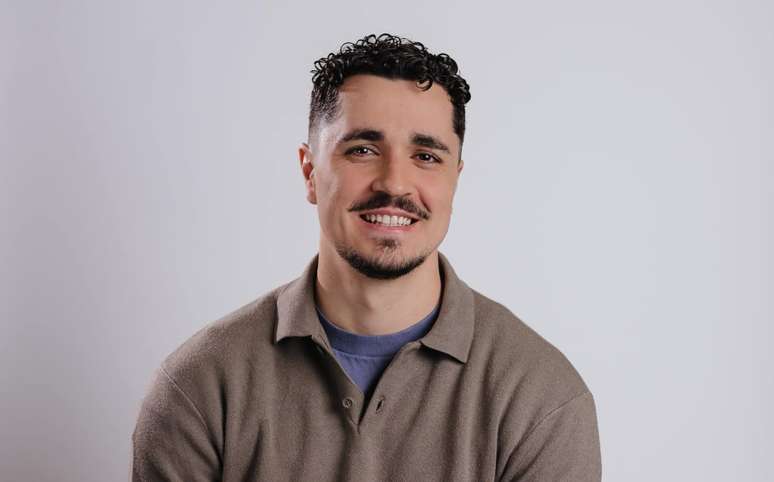A 28-year-old young man works on the “Todos Somos Um” project, which brings food and entertainment to the residents of Favela do Boqueirão, in the south of São Paulo
On the right side of the road, three women and a three-month-old baby were sitting in a beauty salon. Seeing Tamires Rocha, 28, pass across the street, the woman with the baby hurried off to find her. “You don’t know what I’ve been through these days. He [o menino] he was hospitalized and nearly died. I texted you, but I guess you were on your ‘run,’” the woman gasped.
Tamires didn’t even have time to form a full sentence before the story kicked in. He has lent his ears and his time to do what he calls part of his work as a social activist: addressing the problems of others, because most of them have already touched it firsthand.
The scene is not an isolated case and is repeated every time Tamires leaves the house and crosses the Favela do Boqueirão, where she has lived since her childhood, when she lived with her mother Maria, her brother Wanderson and her father Mauro Mateus dos Santos , legendary rapper Sabotage (1973-2003). The “Master of the Canon” spent the last four years of his life there, before being assassinated in January 2003.
“One phrase I learned from my father was, when it gets better for me, it gets better for you,” Tamires says. What the rapper probably didn’t imagine when he said it to his daughter, still a child, is that this would become the motto of the young woman.
Tamires dedicates hours of her day not only to listening (in person, but also to audios arriving via WhatsApp or Instagram), but also to delivering lunch boxes to the homeless in the city centre, raising funds for the “Todos Somos Um ”, to the work he lends to the City Council of São Paulo in the street council, to the Law lessons of the first period and to the meetings of parallel projects that he helps (as he can, he wants to underline it) to carry out.
“I think to be a social activist you have to put yourself in people’s shoes, right?” comments Tamires, who says she has never really reflected on the true meaning of what she does.
“It’s that thing we say is empathy. Why help? I’ve been through all of this. Why do I help the hungry? I died of hunger. Why do I help those who are cold? I lived in a wooden shack,” she adds.
The trajectory with social work began in Tamires’ adolescence, a time when the “Todos Somos Um” project was an unbaptized embryo and without official registration. The action was carried out by the residents of Boqueirão on a voluntary basis. On holiday dates, the group would throw hot dog and soda parties for the children in the community. The student recalls that her first contact was during a party in June.
It was at the age of 15 that Tamires migrated from a beneficiary to a member of the social project. Around dates like Children’s Day and Christmas, he would stop by neighbors’ homes with a notebook noting what everyone could donate to neighborhood events.
In 2019 alone, “Todos Somos Um” earned a name and CNPJ, an action motivated by the growth of the project. In addition to neighbors, the volunteers also sought donations from community shopkeepers: “The butcher shop gave me meat or sausage to make with bread,” explains Tamires.
In addition to Tamires, Diego Bola, leader of the Boqueirão community and former councilor of Sabotage, has also begun to take the lead of “Todos Somos Um”, a name given by Bola himself and which means that unity is strength.
With the duo in charge of the project, “Todos Somos Um” he started to promote more actions, which had as main objective the 1,200 children living in Boqueirão. They have become specialists in large children’s parties and Christmas parties, which leave the small neighborhood clay court crowded. In addition to food, inflatable toys are set up and volunteers paint faces.
Another action that is already established are the letters that children write asking for gifts. “There is a letter in which the little girl asks Santa for ramen noodles, which was her dream to eat one,” she said.
The expansion of the social project occurred at a time of two tragedies, one global and the other personal. The world has become aware of Covid-19, a disease caused by the coronavirus that has killed more than 700,000 people in Brazil. Among the victims, Diego Bola. “Life in Boqueirão was no longer the same,” comments Tamires, who, still in mourning, assumed greater responsibility within the community.
It was also during the pandemic that concern about hunger became more latent. Most community residents worked one-on-one when lockdown was determined, and many lost their jobs.
Tamires has started to rely on partners from other social projects who have donated basic food baskets, passed on to neighbors. The donations were so many that it was possible to distribute them to nearby communities such as Canão, Jardim São Savério, Heliópolis and Vila Prudente.
Today, “Todos Somos Um” has a weekly and monthly program of events and projects. The project site is under renovation and should be used for vocational training courses. The site should be completed by the end of June.
All the work of “Todos Somos Um” is reported to lenders through social networks, which act as an accountability diary. On Instagram, in almost every post, Tamires appears explaining the action taken.
The most recent post is from April, during the Easter period. “The children of the Favela do Boqueirão thank you for the Easter eggs”, they say laughing and together, two of the children assisted by the project, everything necessary to ensure the continuity of the project.
He says the place serves as a headquarters for the residents. One of the most recent and symbolic cases occurred a few weeks ago when a house caught fire at the top of the Boqueirão. Not knowing what to do with the children who lived there, the neighbors brought the film crew to Tamires’ home.
“When I got here, there were a lot of kids in the class watching cartoons,” he jokes. It is as if, in some way, the mother of 9-year-old Alice is also a mother figure for each of the inhabitants of Boqueirão.
Tamires, Alice’s mother and a law student
The multitasking young woman points out that in her frenetic routine there is always room to take care of her daughter and have moments dedicated to her family. Tamires likes to cook, study for exams and work on the Law course at the Academic Training Center (CTA), at dawn, and she has a habit of picking Alice up from school.
“They are unique moments because one of the images I like to remember most is when my father came to pick me up from school. He had a busy life, but he tried, you know?” says Tamires.
She says her father used to heat lunch for her and her brother Wanderson as soon as they got home from school. The cure was carried out amid a maelstrom of sonic information since Sabotage, Tamires says, had a habit of turning on all electronic equipment at once.
The newspaper was playing on one television, a cartoon on the other. The radios also broadcast different frequencies, tuned to the news or the most varied music. “The sabotage was eclectic,” Tamires says.
In the house where he currently lives, the silence is broken by the shy bark of two shih-tzus adopted two months ago. Another moment of hype is when grandfather Joaquim, the father of Sabotage, plays with the animals. The 80-year-old man had no relationship with his son, abandoning him in infancy, says his granddaughter.
He was found by family members about four years ago and taken by Tamires to live in his home. “My father was very sorry, but he always wanted to help his father”, explains the young woman about the welcome.
Tamires, daughter of Sabotage
Dedicated to family and social work, Tamires has yet another facet. It is she who plays with her brother in several projects that pay homage to her father. The fight is to keep the legacy of the man behind the album “Rap é Compromisso” alive. In the year that the rapper would have turned five decades old, the children planned a series of actions to talk about their father, including painting an alley in Boqueirão with graffiti in reference to the rapper. Viela Cultural Sabotage was inaugurated five months ago, and a performance was held three months ago as a form of symbolic ceremony.
The children’s project also aims to release an album of posthumous Sabotage collaborations with singers with whom he has never recorded. The curation considered artists that Tamires and Anderson believe the rapper would like to join. Among the names are Criolo, Filipe Ret, Djonga and NINA do Porte.
The song featuring NINA was the only track ever released and gave a new voice to “Respeito É Pra Quem Tem”. The song also got an official music video.
Tamires may not participate musically on the album, but she already has an enviable discography. She recorded songs in styles such as rap, gospel and, in “Lembranças”, she launched into a melodic pop to say goodbye to her father. The single won a clip available on Youtube.
“In the living room, I looked at you. In every gesture, in the tone of your speech. Storyteller, rhyme teacher? YES! Her pen was soul, heart to beat,” says an excerpt from the song.
Source: Terra
Earl Johnson is a music writer at Gossipify, known for his in-depth analysis and unique perspective on the industry. A graduate of USC with a degree in Music, he brings years of experience and passion to his writing. He covers the latest releases and trends, always on the lookout for the next big thing in music.








